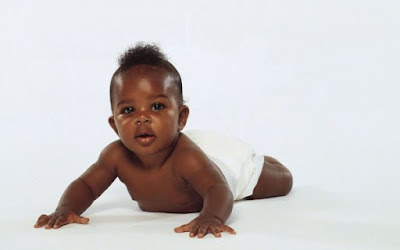Naledi Thabane
and her late husband adopted Lesego when she was 2 months old, 22 years ago in
March 1997. Lesego brought light into our lives, home and gave us a purpose for
living. Naledi says her building a family through adoption, with the help of
Child Welfare Tshwane, was the best thing that happened. She says it was a true
blessing to have a social worker from Child Welfare Tshwane to provide the
support and encouragement that led them to their daughter. “Experiencing the
joy of adoption is special and sharing it with the rest of the world is awesome”
says Naledi.
She always had
faith that she would be a mother one day and believes that everything happens
for a reason. “My years of suffering were essential for me to understand what a
gift it is to be a mother. I’m glad God chose this path for my life; his timing
was perfect because my baby was meant for me and I was meant to be her mother”
Naledi told us.
She highly appreciates
motherhood no matter the way it came to her. She enjoyed experiencing all the
developmental stages of her daughter from being a toddler, a teenager, and now a
full-grown independent, responsible beautiful woman. She cannot stop thanking
God for showering her with such blessings and considers her daughter a
wonderful gift. “I feel like I won the lottery”, says Naledi.
She says her family embraced Lesego fully
and continues to love and support her even after 22 years.
Lesego confirms that, at 2 months old, a life-changing decision was made on her
behalf which has eventually led her to be the daughter of Naledi and John
Thabane.
“I was raised by
two loving parents and the greatest support system - my family. My mother has
been through all stages and provided support. She has taught me the importance
of God but most importantly she has taught me independence and the power of
giving, “ says Lesego. She added that her father was the type of man to brag to
the whole world about his only daughter. “All my life I remember the molly
cuddling from my family and my grandmother” she laughs. “All in all, I’m a
child who has received an overflow of love and that’s why, when I was told I
was adopted at 15 years old I struggled to comprehend the idea. As a young
child I imagined my mother on a hospital bed and me in a bassinet next to her
after birth!”, she says.
Lesego says she always
connected the characteristics, whether physically or behavioural, with both my
parents and I genuinely believed they are my biological parents. Even when
people remarked that she did not look like her parents she could not understand
why as she believed in her origin! As a 15-year-old
she struggled to fathom the idea of adoption. “I stood in the mirror daily
saying my full name and adoption in the same sentence just to try and bring the
realness of my name and the unfathomable word adoption in line. The love I was
surrounded with throughout my life made it hard to believe that I had once
been the child of another woman,” says Lesego.
She took three years before starting a
process to find her biological mother. Naledi encouraged her to do so because she wanted Lesego to find out if she has
siblings and to have closure.
At the age of 18 years old, she finally
decided to meet her biological mother with the help of my mum and Nina de
Caires, Supervisor of the Adoption Unit at Child Welfare Tshwane. “After that
day I continued and pondered on the idea of my biological father and till this
day I think I did because I thought it would make up for losing my adoptive
father at a young age”, says Lesego.
Naledi and Lesego agree that, as an adopted
child, and adoptive mother, the advice they would give will be to show
unconditional love and to leave no room for uncertainty. “Keeping a collection
of the child’s educational progress and crafts is important as a mother because it was
rewarding and fulfilling. We aren’t just mother and daughter but best friends
by having open communication and honesty. Above all unconditional love is the
greatest and most important of all, says Naledi.







